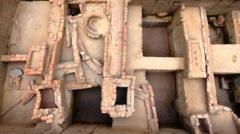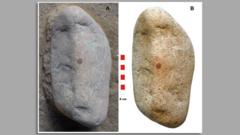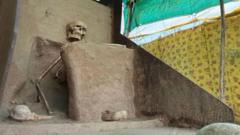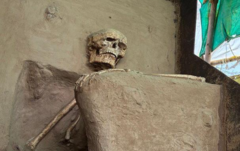Rakhaldas Banerjee is remembered as an archaeologist whose work in the early 1900s led to the discovery of Mohenjo-daro, a key city of the Indus Valley Civilization, located in current-day Pakistan. His remarkable career within the Archaeological Survey of India (ASI) was marked by both brilliance and controversy, restricting his recognition in world history. During his tenure, Banerjee traveled extensively, seeking ancient artifacts and scripts, yet he often clashed with colonial protocols, resulting in disputes that tainted his legacy. Although pivotal in uncovering significant archaeological sites and linking them to the broader Indus Valley Civilization, Banerjee's reports were suppressed, leading to the credit for his work being attributed to others. After a controversial exit from the ASI due to unfounded allegations of idol theft, he continued his academic career until his untimely death at age 45, leaving behind a complex, yet notable, legacy in archaeology.
The Overlooked Legacy of Rakhaldas Banerjee: The Discoverer of Mohenjo-daro

The Overlooked Legacy of Rakhaldas Banerjee: The Discoverer of Mohenjo-daro
Rakhaldas Banerjee, an Indian archaeologist, made one of the most significant historical discoveries in the early 20th century but has since been largely forgotten.
Rakhaldas Banerjee was a pioneering Indian archaeologist who uncovered the ancient city of Mohenjo-daro during the early 1900s, yet his contributions have barely received recognition in historical narratives. Working for the Archaeological Survey of India under British rule, Banerjee's passionate explorations revealed key artifacts and insights into the Indus Valley Civilization, extending over present-day Pakistan and India. Despite his groundbreaking findings, disputes related to his methods and friction with superiors led to an overshadowed legacy, with claims of credit taken away from him. Banerjee's fascinating yet tumultuous career ultimately ended prematurely, reflecting the challenges faced by brilliant minds in the realm of archaeological discovery.
Rakhaldas Banerjee is remembered as an archaeologist whose work in the early 1900s led to the discovery of Mohenjo-daro, a key city of the Indus Valley Civilization, located in current-day Pakistan. His remarkable career within the Archaeological Survey of India (ASI) was marked by both brilliance and controversy, restricting his recognition in world history. During his tenure, Banerjee traveled extensively, seeking ancient artifacts and scripts, yet he often clashed with colonial protocols, resulting in disputes that tainted his legacy. Although pivotal in uncovering significant archaeological sites and linking them to the broader Indus Valley Civilization, Banerjee's reports were suppressed, leading to the credit for his work being attributed to others. After a controversial exit from the ASI due to unfounded allegations of idol theft, he continued his academic career until his untimely death at age 45, leaving behind a complex, yet notable, legacy in archaeology.





















